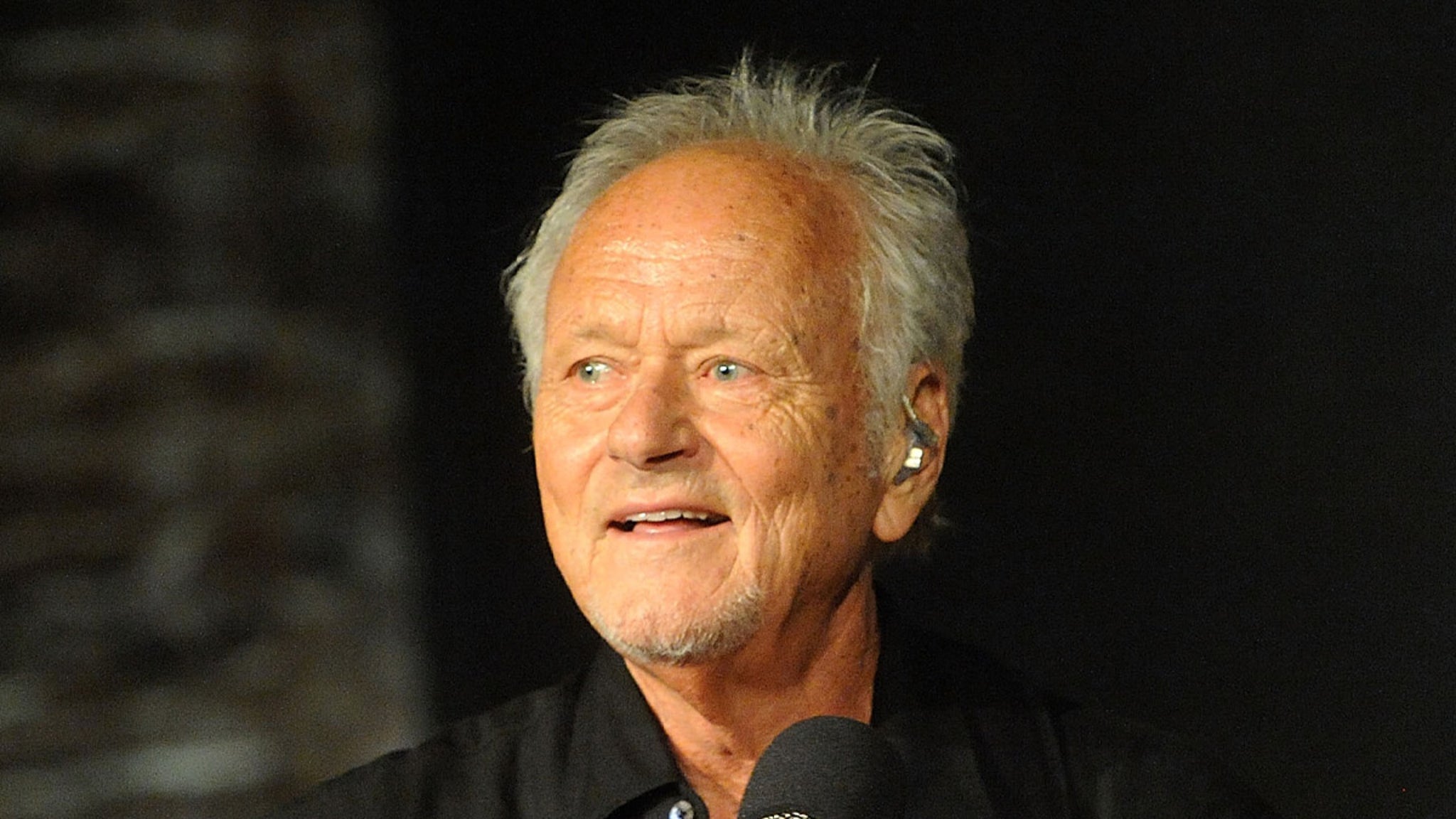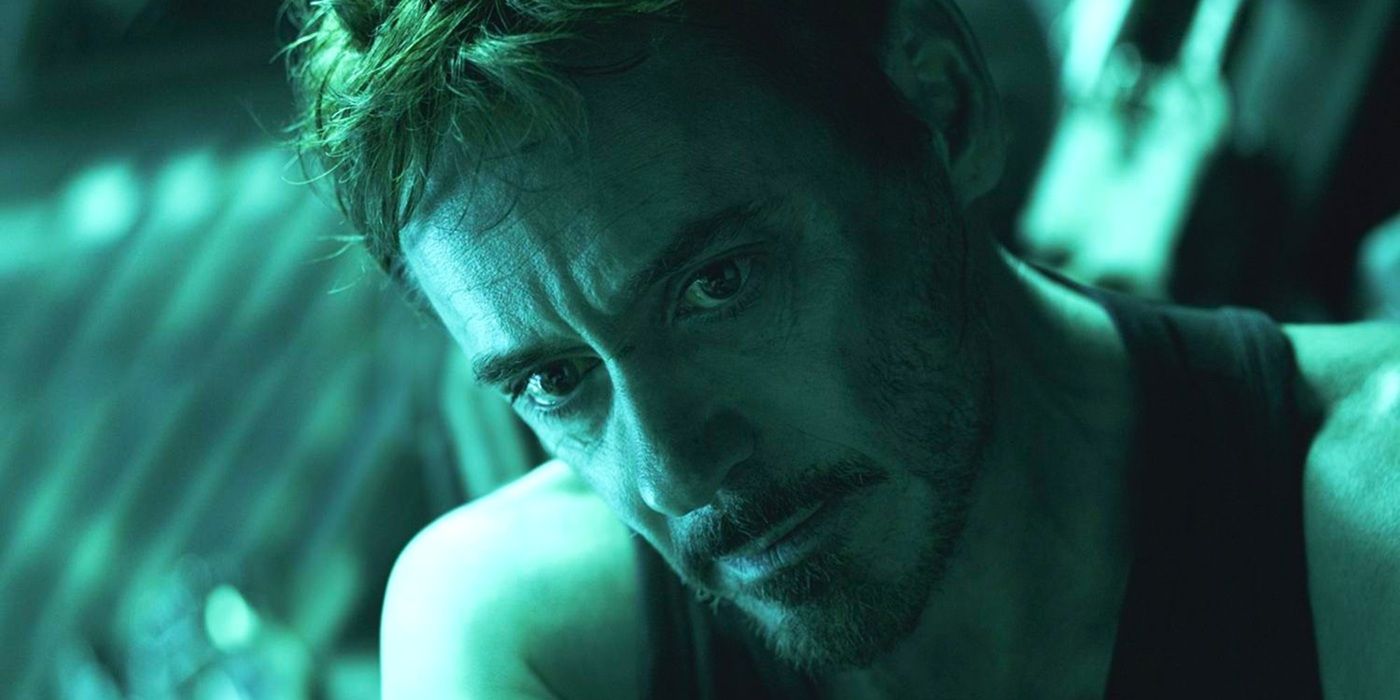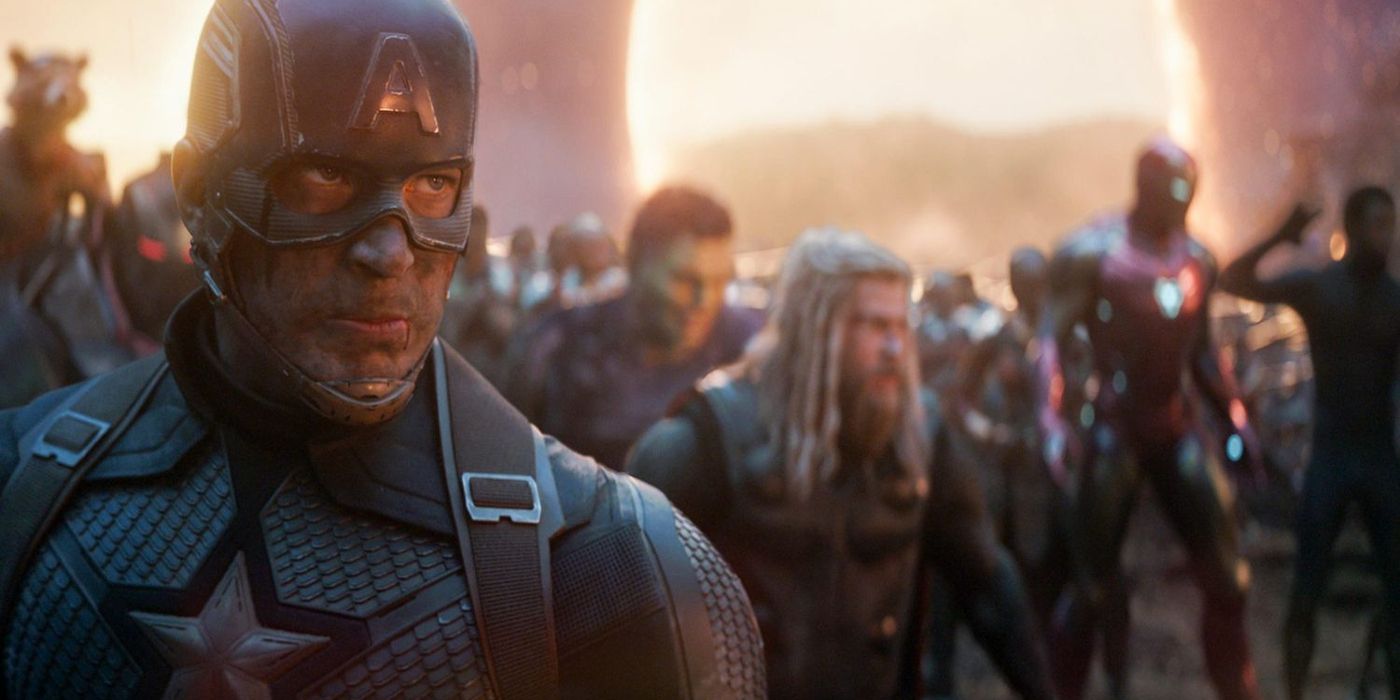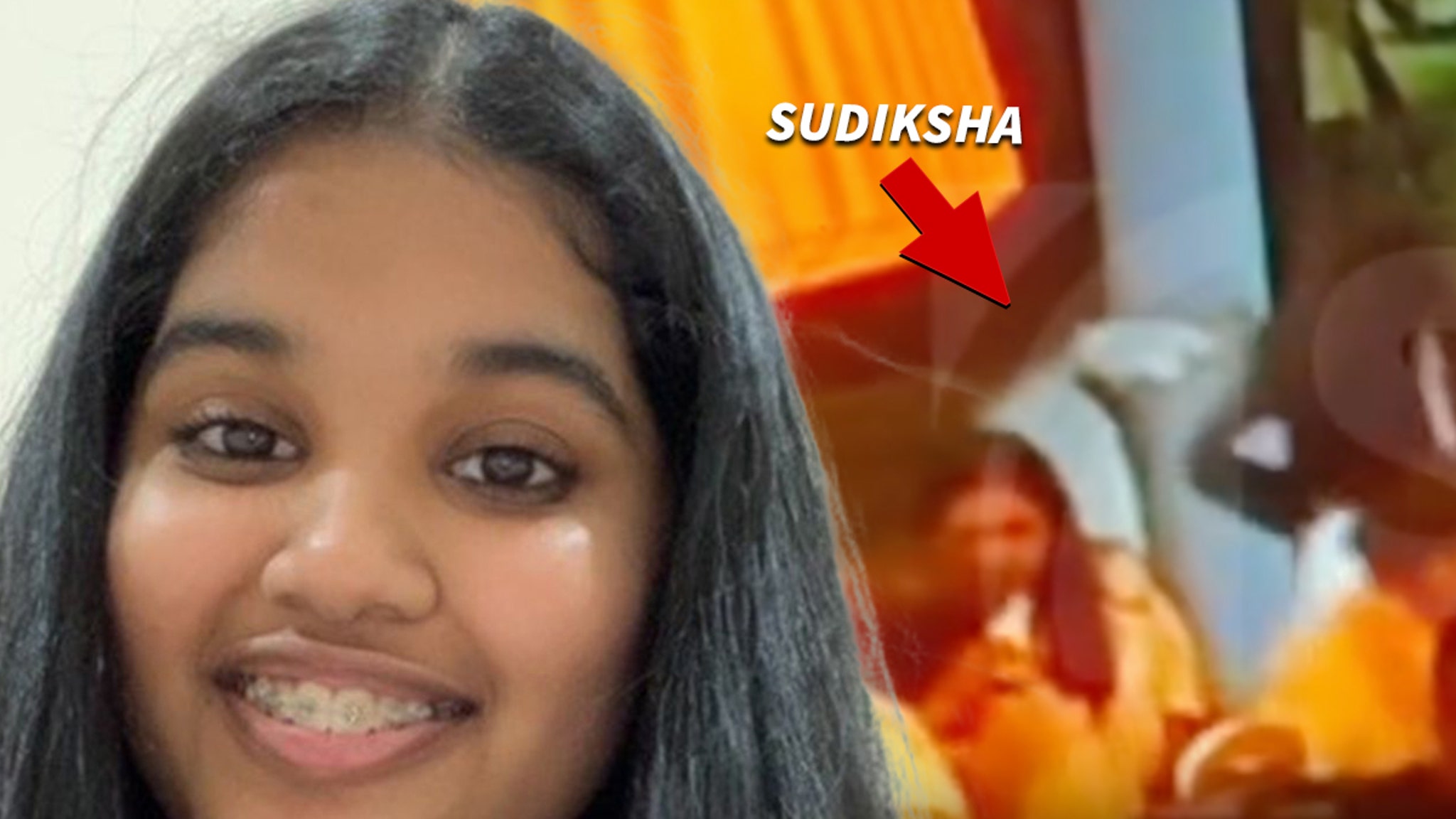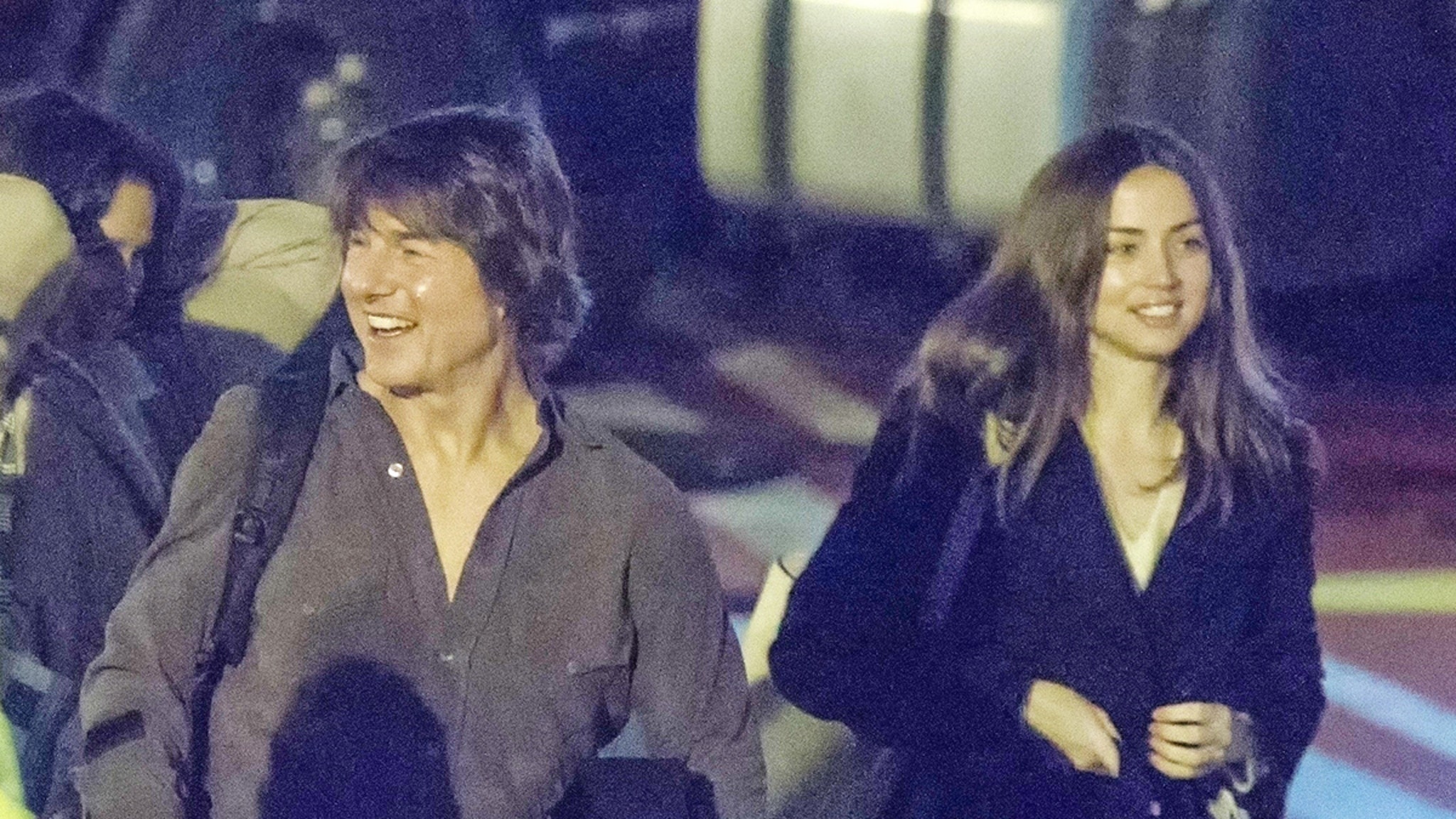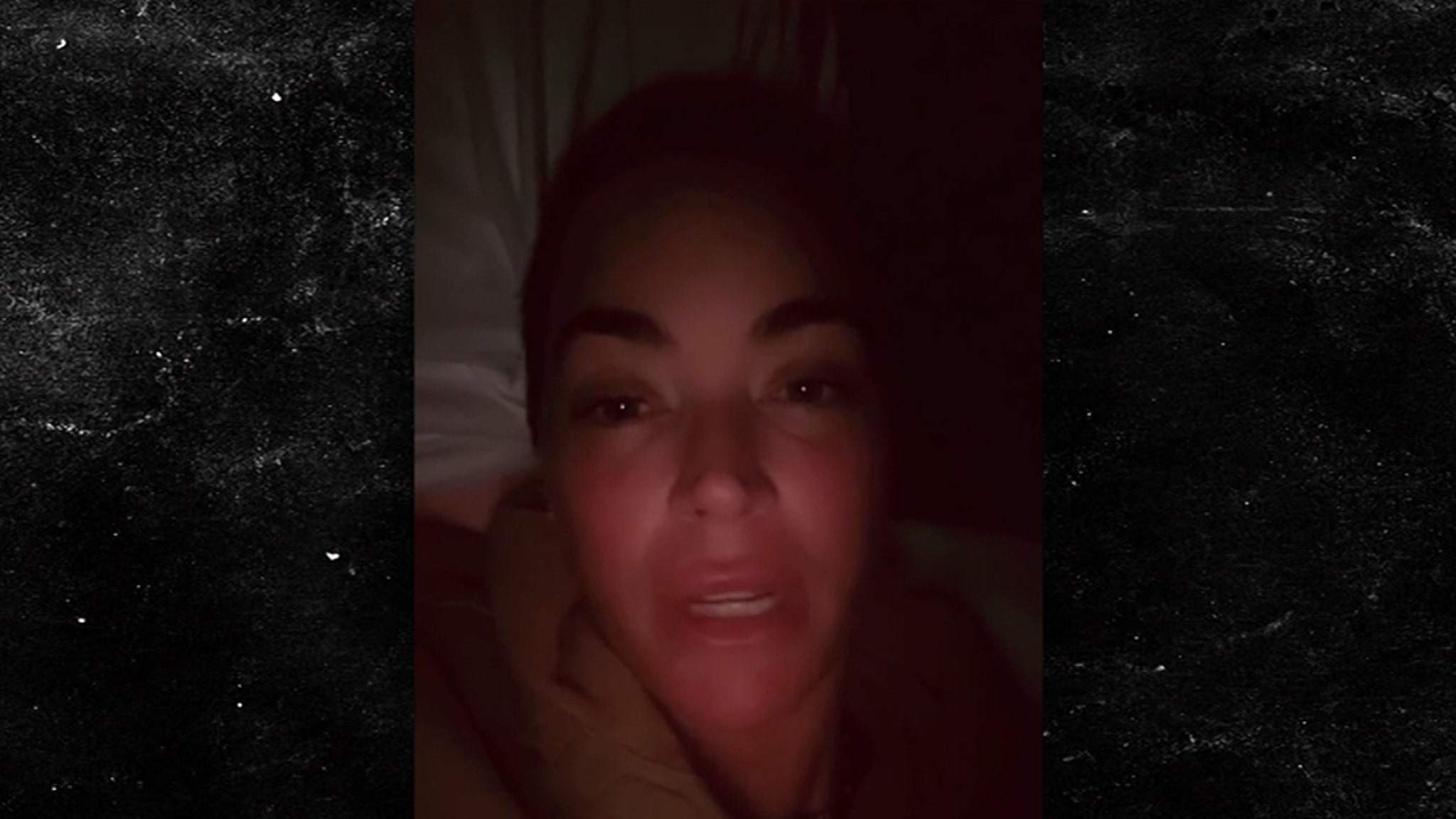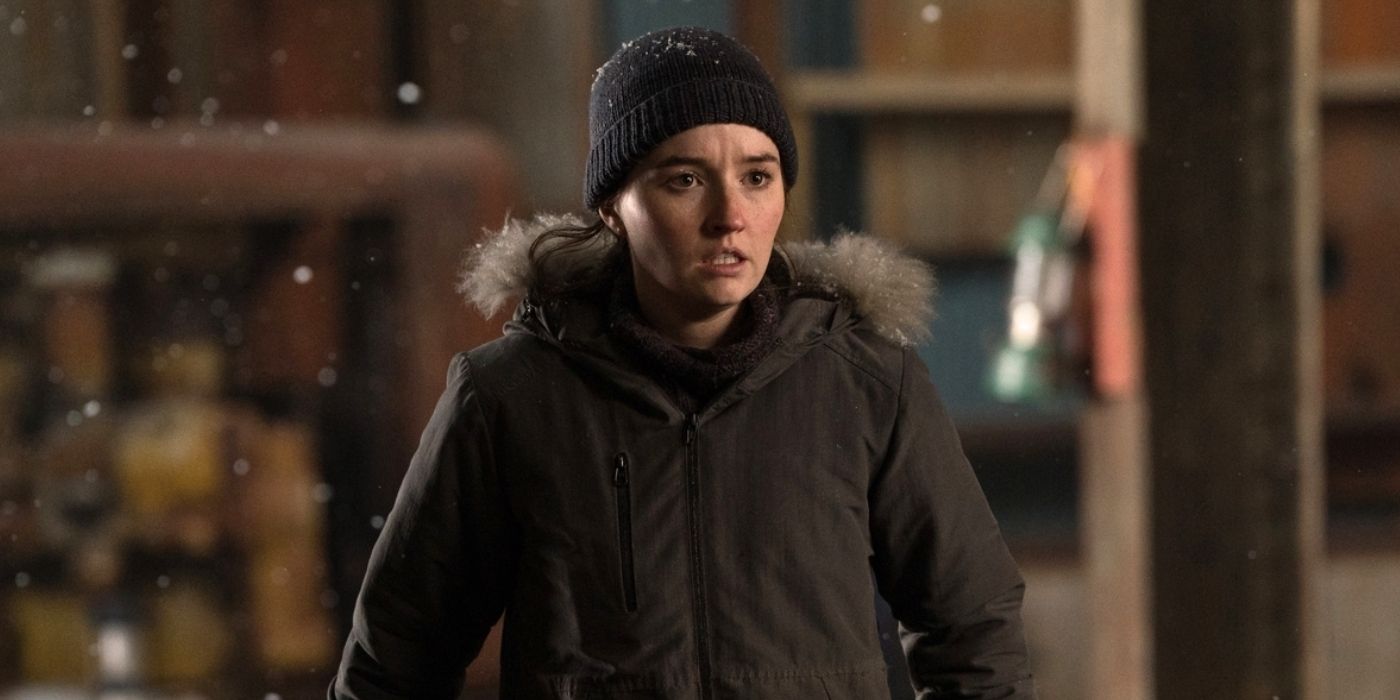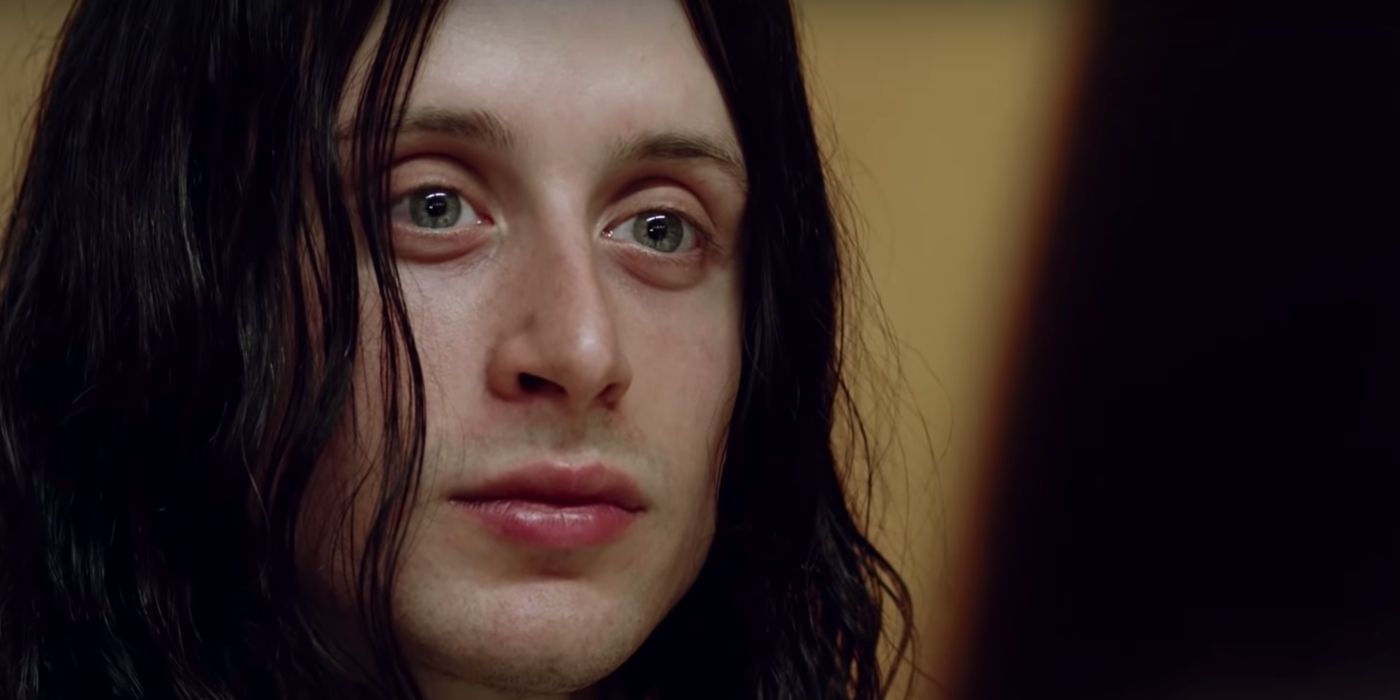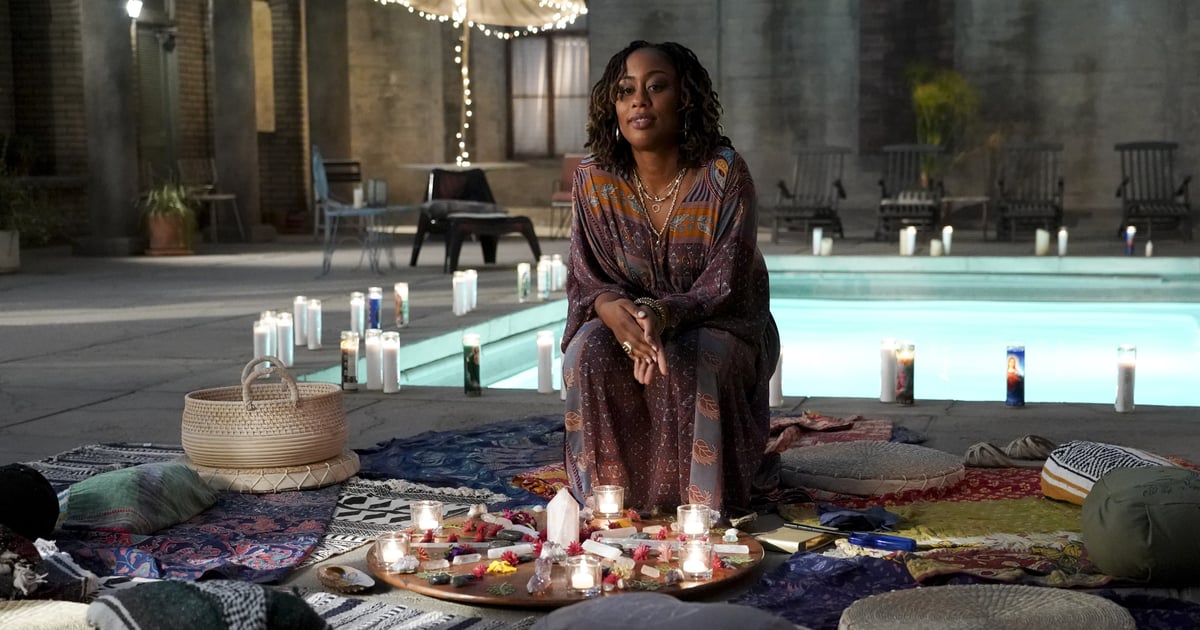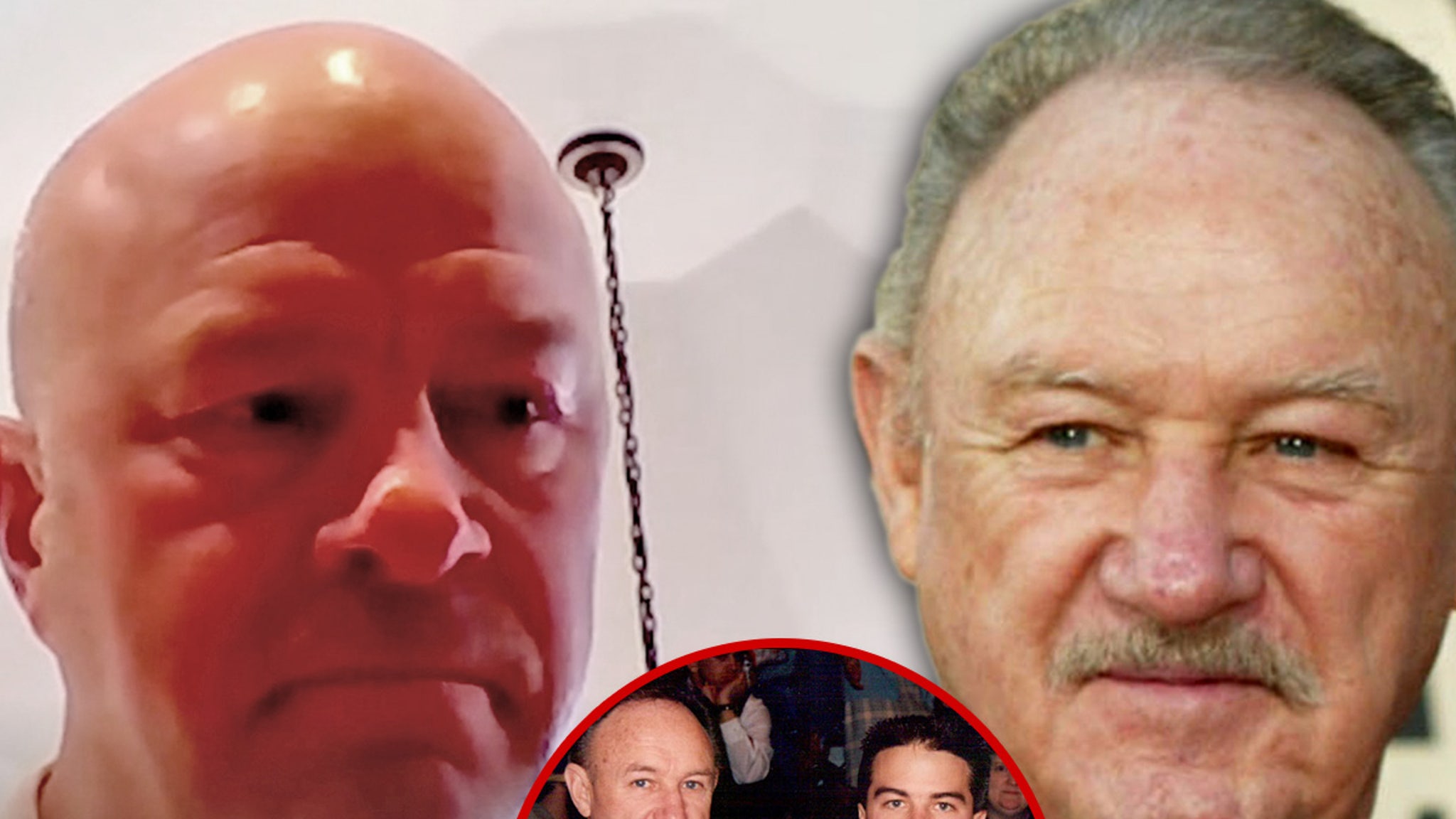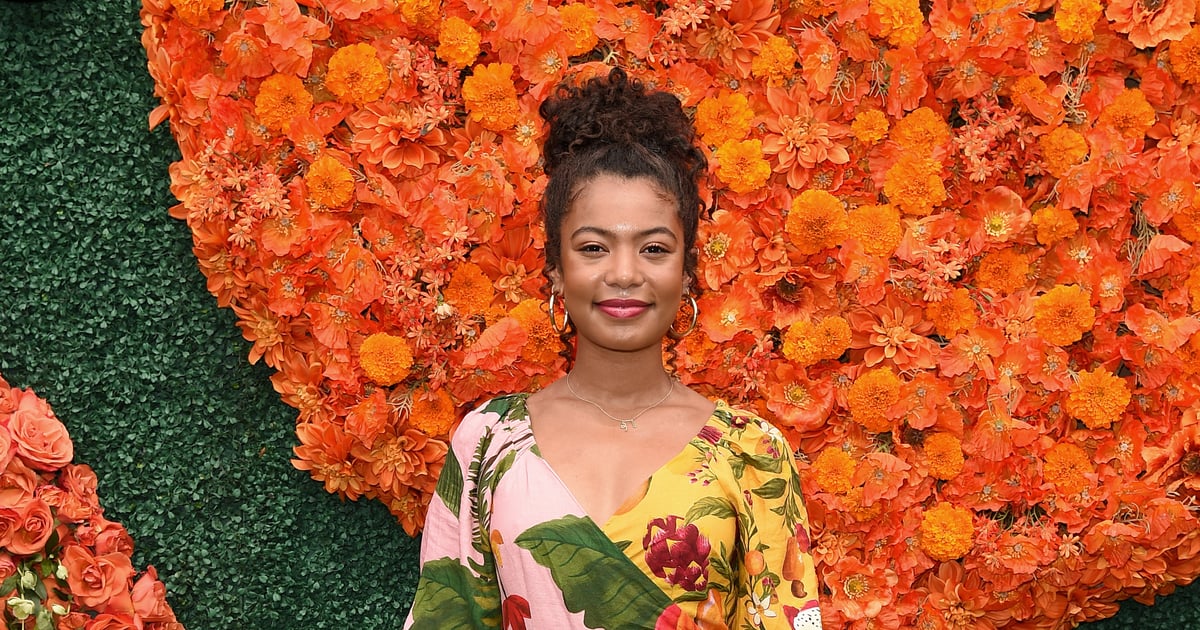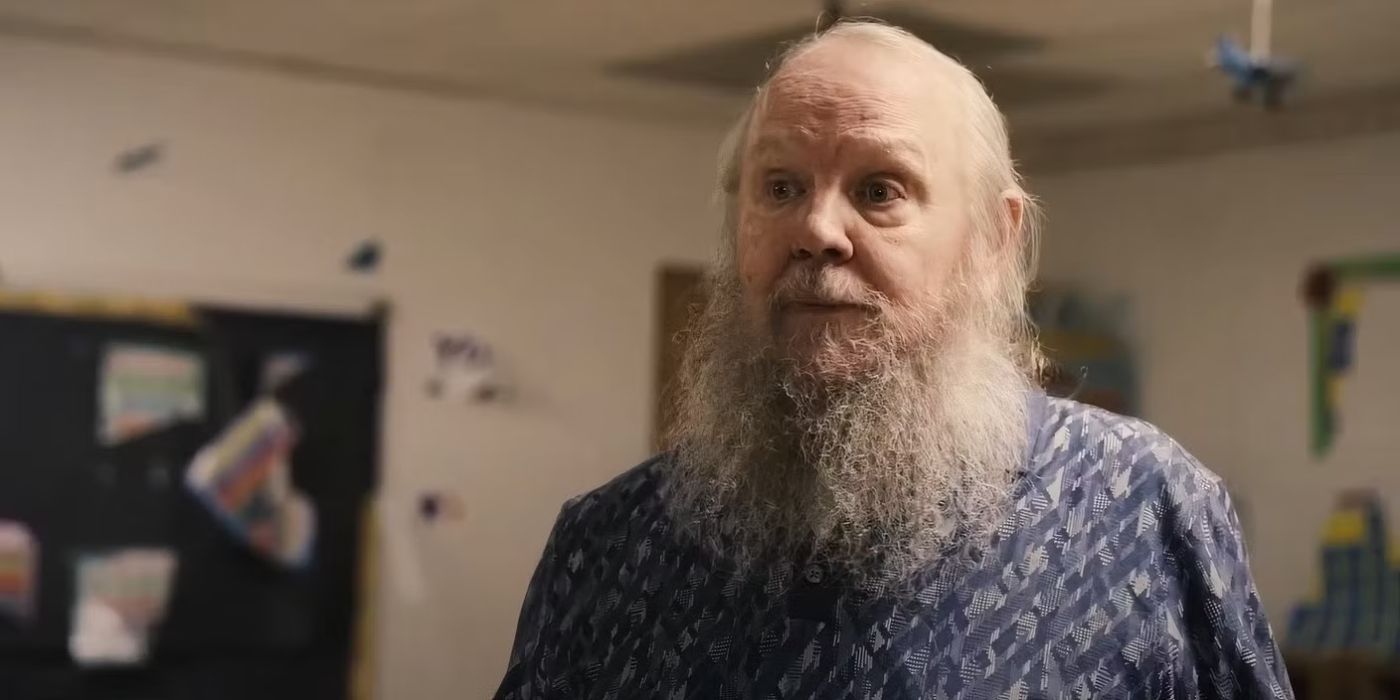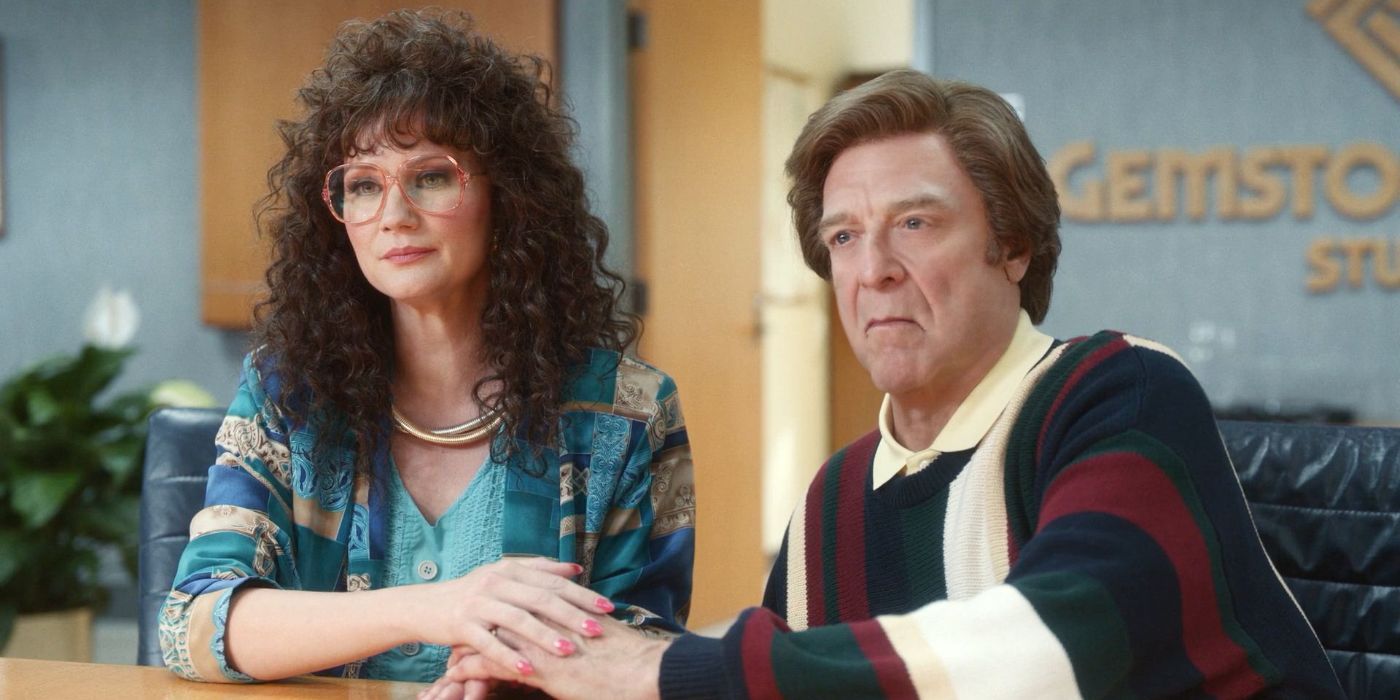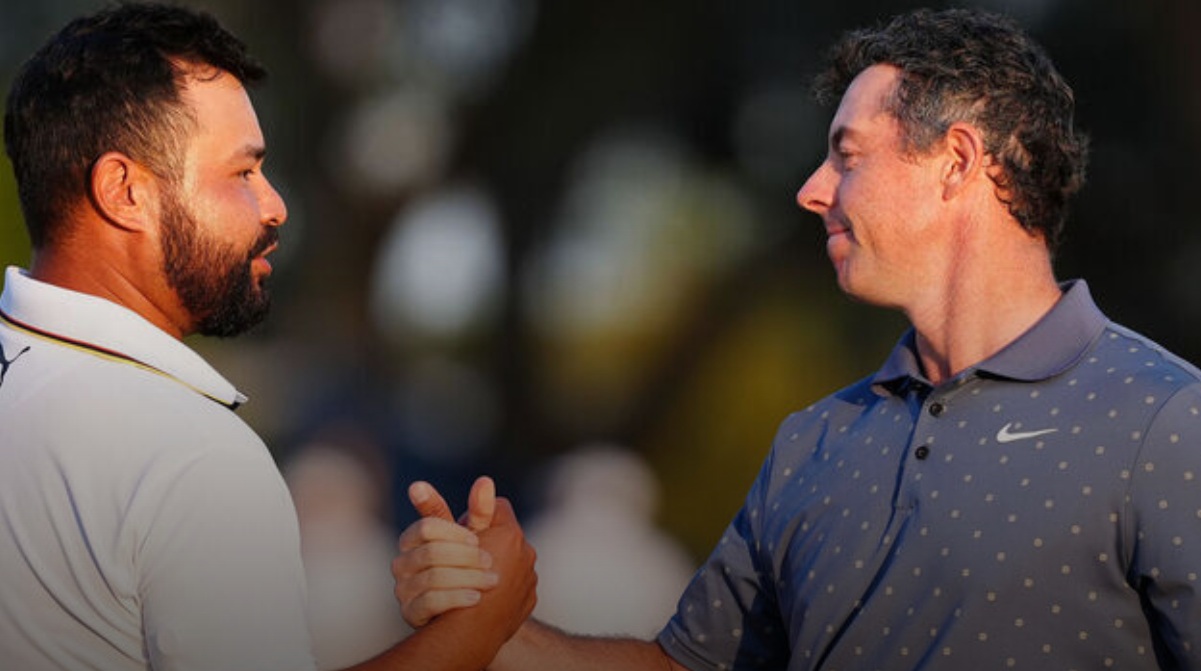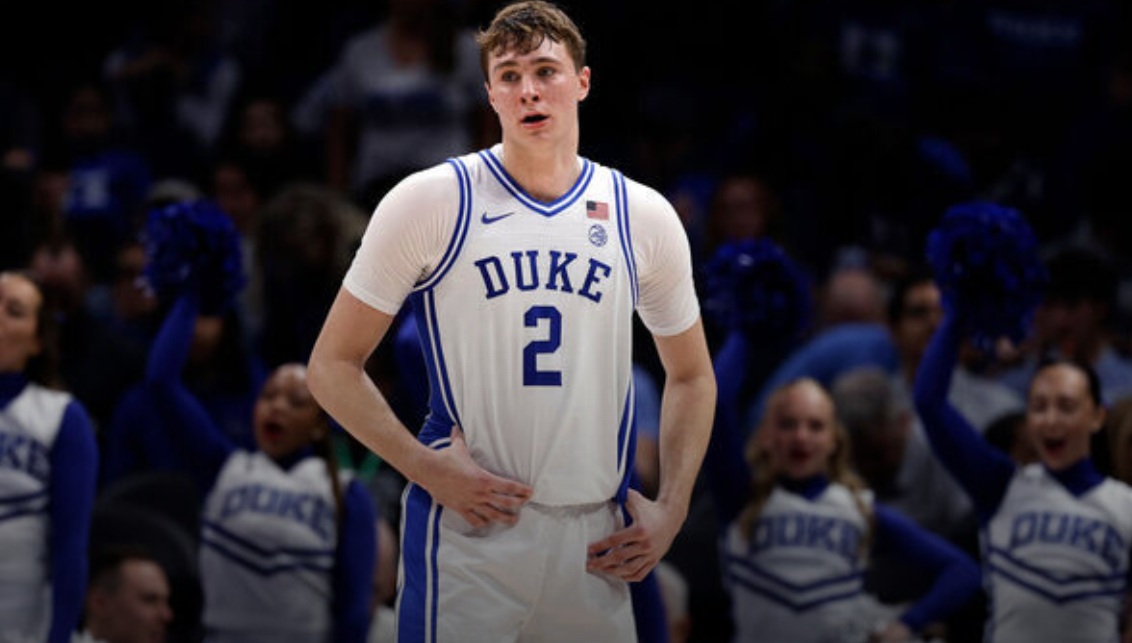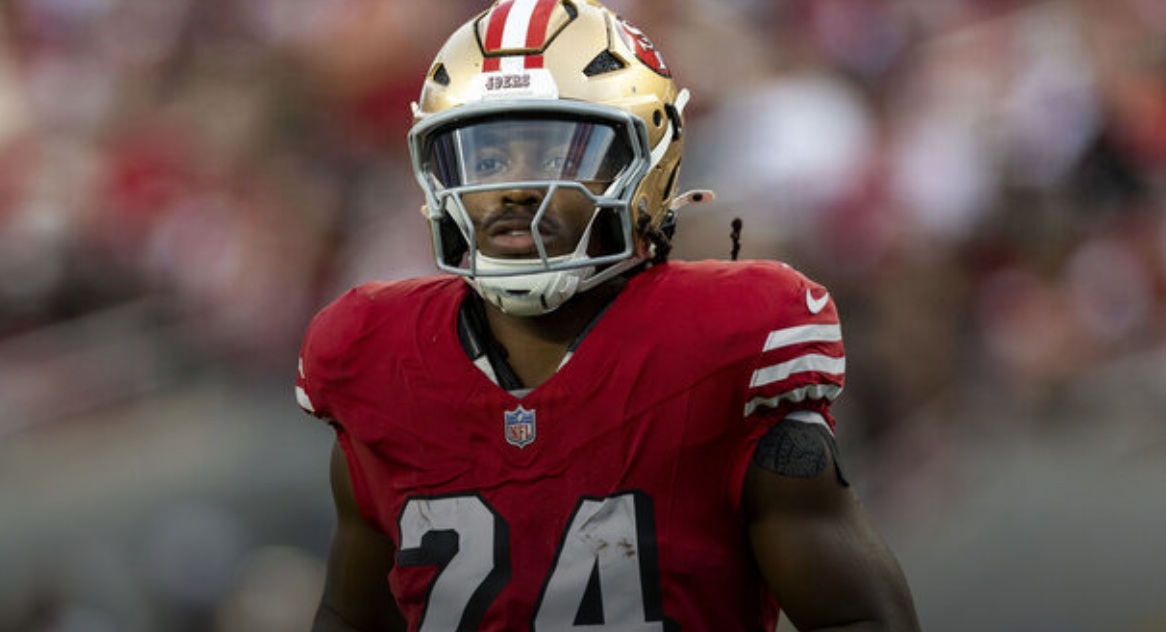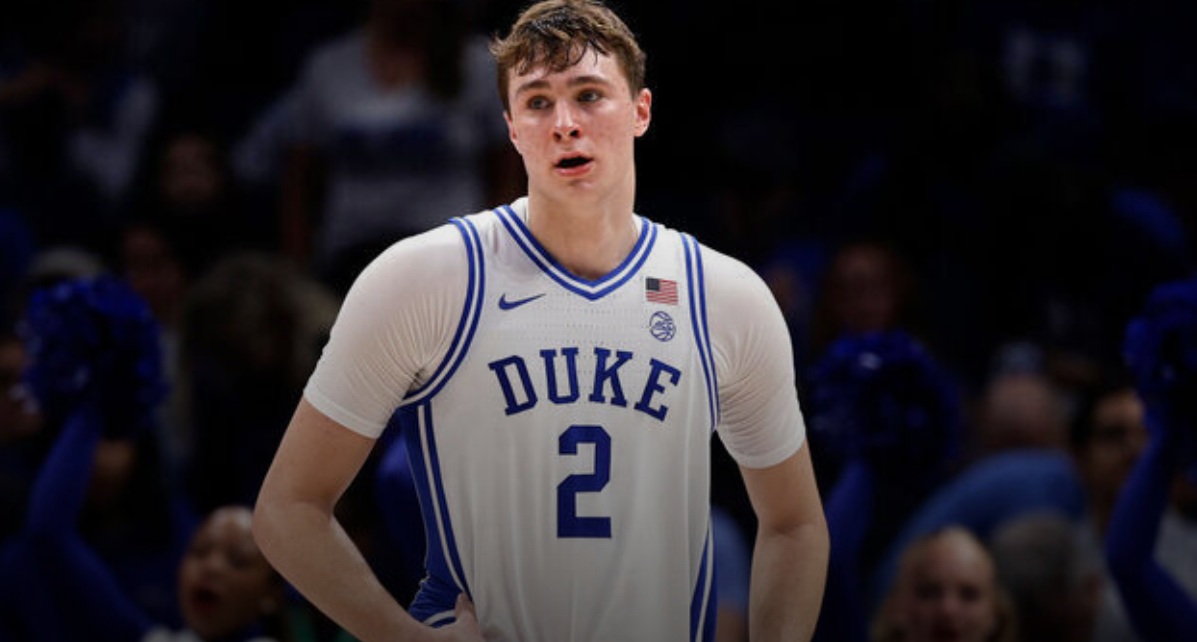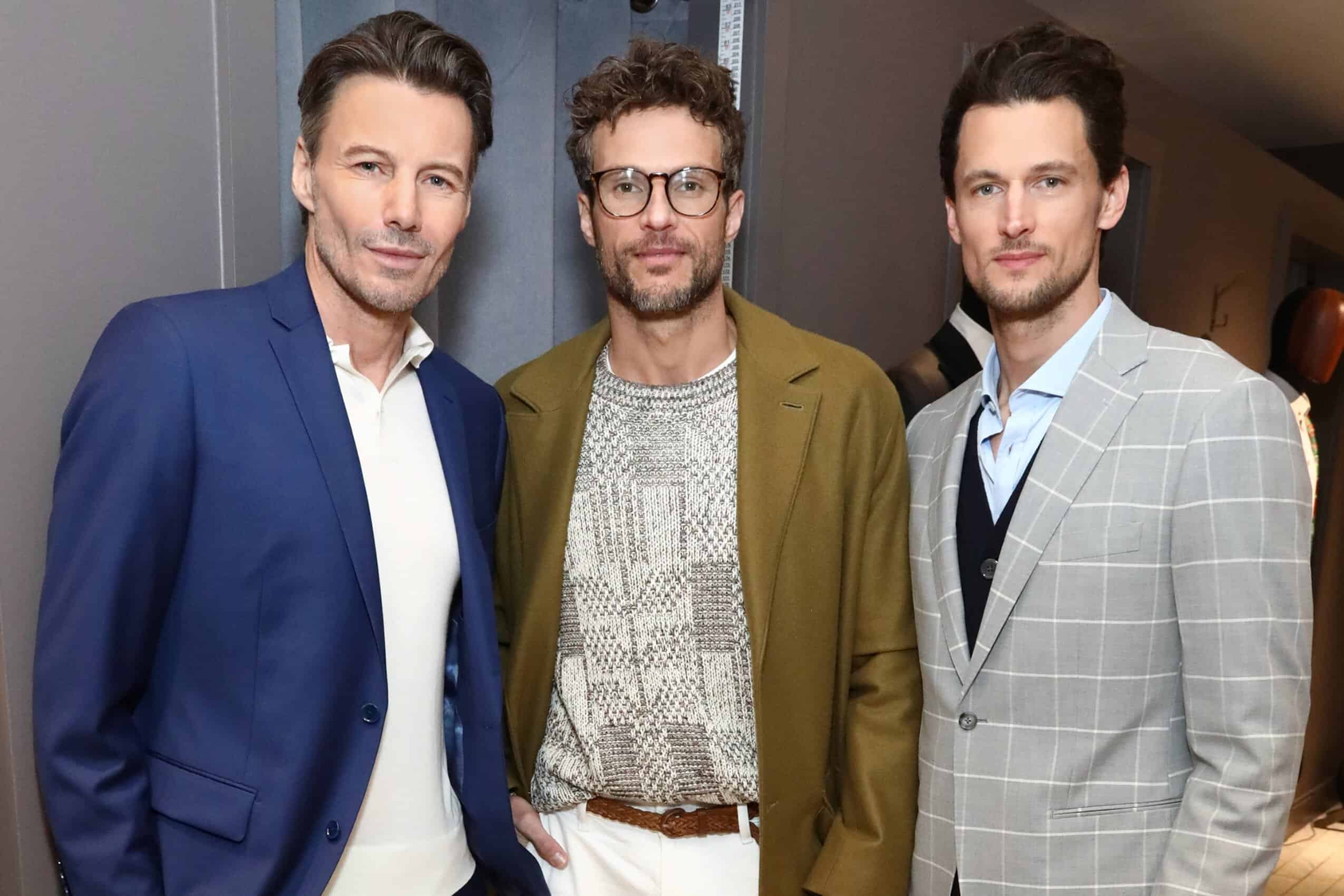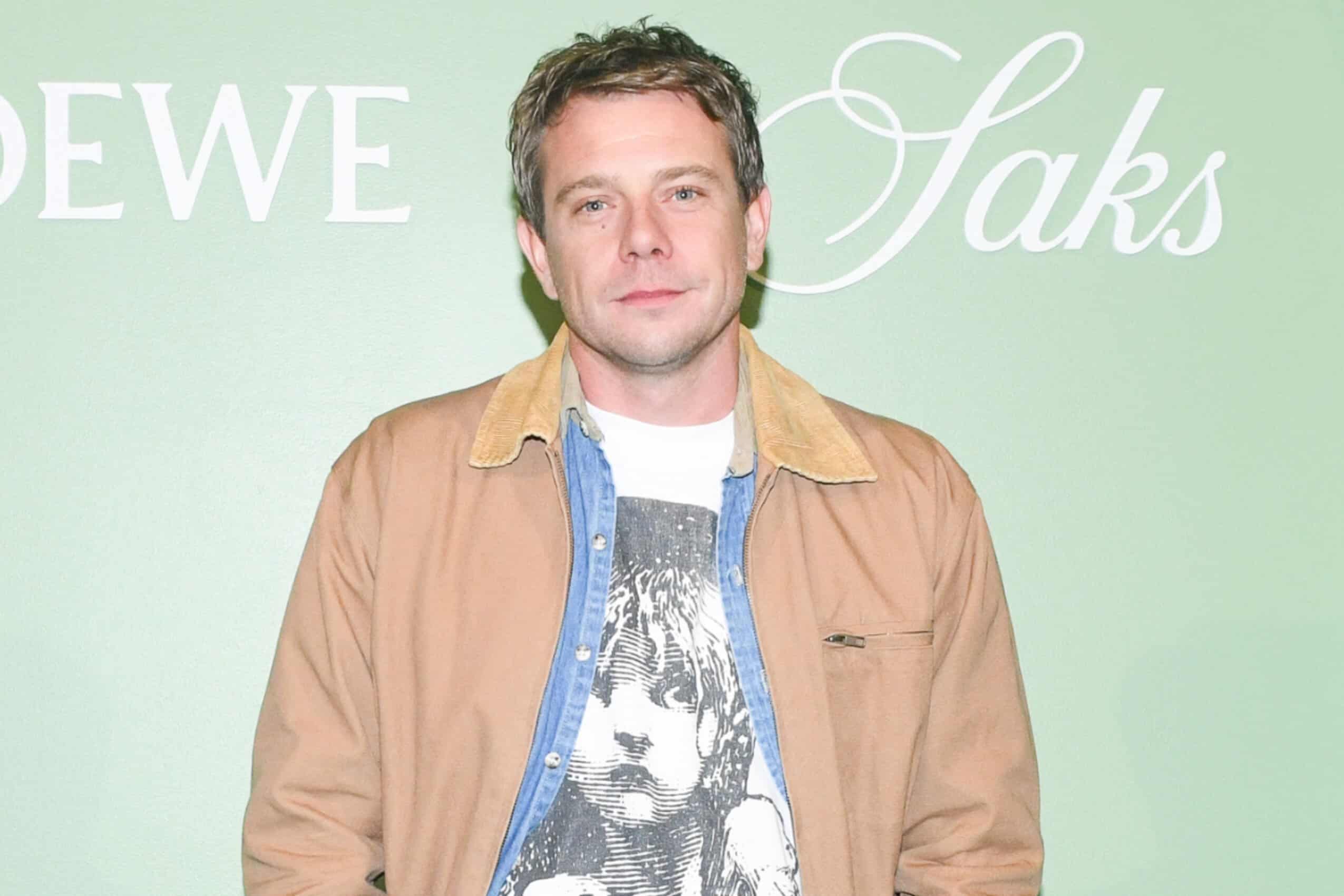Image Source: Freeform
As a Black woman who loves TV, I’m always going to give a show starring another Black woman a chance. I do so, holding my breath, and hoping that the character won’t be another mammy figure who only appears when her white costars need sassy advice or someone to take care of them. When Good Trouble premiered in January 2019, Zuri Adele’s Malika Williams was front-and-center of all promotion. She was completely different from what had become the norm for Black characters on Gen-Z-focused series: dark-skinned with tightly coiled natural hair and a refusal to let anyone get in her way.
From her first scene, it’s clear that Malika is different from her onscreen peers. She’s politically aware in a way that Black women generally have no choice but to be, with a story of familial woes that strays close to cliche territory when it comes to Black families torn apart by the racists institutions of the world. But Adele deftly handles the heaviest of storylines with grace and skill that belies the short time she had been professionally acting before Good Trouble‘s premiere. Adele’s ability to highlight Malika’s vulnerability in every scene keeps her from seeming like an ever-strong magical Black BFF. Instead, Malika is intelligent, but not all-knowing, she’s passionate, headstrong, and a little arrogant, regularly showing off a competitive side. She’s unapologetically bold and quick to lend a helping hand — but she’s not unbreakable. She loves fiercely and is fiercely loved in return. She’s the damn dream!
So when Adele chatted with POPSUGAR to discuss Malika’s journey from season one to the currently airing third installment, I made sure to ask all the pivotal questions, including finding out where the actress stood regarding that recent love triangle.
POPSUGAR: So, let’s launch right into it! I’ve been a big fan of Good Trouble since jump — like I didn’t even watch The Fosters but I was instantly into Good Trouble. And Malika was so intriguing because she’s the rare Black main character who actually has a narrative. What were your thoughts on Malika when you first signed on to the show?
Zuri Adele: Well, I just was blown away because Malika feels like a soulmate of mine. I had auditioned four times and, this is after having auditioned for roles on The Fosters and not getting them. I was also in this post-graduate chapter where my ego had gotten a bit big. I had been used to being the star of shows in academia. And then I got really into a humbling season because I was a couple of years out of school in LA, auditioning for roles and not booking anything. I was starting to feel discouraged and out of alignment trying to make ends meet.
And, when I read for the role of Malika and read that script and met the creators, I felt like this is why every other door was closed. Or, not even closed but opened in other directions. I read it and was like, “This is my assignment.” Having watched The Fosters, knowing what the creators were standing for and what their goals were in terms of exposing the liberation movement, it just felt so right. I was like, “she is me, I am she.” These are all the things I’m so passionate about — I feel like I’m being used to give voice and body to this person. That is my way of expression, and it just felt so aligned. So I was, in some ways, intimidated and, in other ways, really inspired and very clear about my purpose. We were taking everything to the next level and, that’s how I felt when I connected with Malika. It just felt like everything happens for a reason, everyone has their designed assignment, and Malika is definitely mine.
Image Source: Freeform
PS: So, just how much of her character is influenced by who you are as a person?
ZA: Well, you know, she was created and envisioned in this way. I think that when we were all in the room for the audition, the creators of the show (Joanna, Bradley, and Peter) were like, “Oh, she is Malika.” So it was both, the writing inspires me and who I am and how I show up in the world. The writers and the designers have been watching me and fleshed out the character, knowing the cadence of my voice and my aesthetic. So maybe it’s 50/50! It’s hard to tell where one ends and where one starts. But Malika definitely inspires who I am.
PS: I love that!
ZA: Sometimes, I see the way that they designed Malika’s bedroom, and I realize, “Oh, they must’ve been watching my Instagram stories.” Once I had signed on and they began designing her room, it looked exactly like the studio apartment that I was living in at that time! Down to the specific books, the style of art, the incense, and all the things. It feels like a blend!
PS: That shows so much attention to detail.
ZA: Yeah, it’s so much attention to detail! Sometimes I’ll see a phrase that I’ve said in a script, and it’s like, “Oh, they really are writing from my voice now and I love it.”
PS: That’s amazing. What what would you say are some of the differences between Malika from season one versus now in season three?
“I think that, as my confidence has grown, Malika’s has also grown. She’s letting her guard down more, and it feels like she’s being a little sexier and taking the lead.”
ZA: Oh, I love that. I’d say Malika feels more confident now than she did earlier on. I don’t think that she lacked confidence, but I think she had a guard up. She didn’t have a lot of confidence about being vulnerable publicly. That also has to do with me being more confident now because there are so many new things happening in just being on television and being visible. Even acting for TV versus doing theater is a new style to me. I think that, as my confidence has grown, Malika’s has also grown. She’s letting her guard down more, and it feels like she’s being a little sexier and taking the lead. Even in her physicality, some of the things she says show that she’s still bold and tough, but there’s a guard down. She feels just a bit more approachable now in a way that works for her.
PS: The last two seasons of her storylines have focused on her activism. What was your reaction when you learned where she would be going from season two to season three?
ZA: To be honest, I learn pretty much episode by episode so, I’ve just been like, “Oh, shit what’s gonna happen?” I didn’t even know if I was going to be out of jail! But that worked well for me, and my reaction has been mostly excitement and some caution because of how deeply we’re going.
PS: I understand the caution because it’s a heady line, especially when this is the reality for so many folks. I think that feeling makes sense. So, what kind of preparation have you been doing for self-care before you go into these emotional scenes?
ZA: Self care is like my best friend [laugh]. It changes all the time, but I do what I feel like my spirit is asking of me at each moment without needing to know the next step. Usually, I make sure to move my body every day, like yoga or I love a spin class or just taking a walk. Malika’s experiencing a lot of emotions, and Zuri is experiencing a lot of emotions! So, any movement helps me. Water is also a big one — I like showering, bathing, and washing the day off at night, and also starting the day with a shower has been helpful for me. I think things that don’t require talking are best because I’m talking and emoting so many intense emotions at work for like 16 hours a day.
“It’s also good for me that my team is people of African descent . . . It’s nice to make sure like I have a team of professionals who are grounded in my experience from an ancestral perspective, and the whole team helps me take care of my body.”
I just want to water plants, be around things that are bringing life. Cooking, playing music, listening to podcasts, I go to acupuncture, and therapy is like my number one thing that helps me work with Malika. I am processing a lot of trauma, a lot of joy, and a lot of uncertainty in Malika’s life, and also in my life. I find it helpful to have designated time to talk about everything that comes up with a mental health professional. It’s also good for me that my team is people of African descent, including my therapist and my acupuncturist. That’s helpful because I’m always surrounded by people and sometimes they’re Black people, and sometimes they’re not. It’s nice to make sure like I have a team of professionals who are grounded in my experience from an ancestral perspective, and the whole team helps me take care of my body.
PS: Yeah, and I know you have members of the Black Lives Matter movement who are there on-screen and as consultants for the show. How instrumental are they for Malika’s storyline and you as a person?
ZA: They’re so crucial. It’s such an honor to work with Patrisse Cullors and Dr. Melina Abdullah. They’re onset a lot, and they help consult, especially Patrisse. She consults on the storyline, and she was in the writers’ room for season two. And they make sure everything is authentic when it comes to the storylines around activism and what happens at protests. They film with us, and sometimes they’ll have to go to a protest right away right across the street, or they’ll be on a call with family members who have just had a loved one impacted by incarceration or police violence. It’s interesting to hear them talk to one another and see them balance everything with being on TV, which is new for them. And they’re also so normal — they laugh so much despite the trauma that they are around.
But like, they talk so much shit! [laughs] They’re sisters, they laugh with so much joy. They have kids that are FaceTiming them, and they have so many normal things that they’re balancing, so it’s helpful for Malika! She’s balancing being a bartender, a student, an activist, having a partner, and all the family stuff that’s going on. It’s good to see that it’s realistic and how they balance those things. They also bring different family members they’re helping to set, and meeting those people, talking to those people, makes everything feel authentic. I mean, down to what the offices look like at Malika’s internship at Dignity and Power Now. That’s all influenced by the real-life Dignity and Power Now and Black Lives Matter work that Patrisse and Melina are doing.
PS: And you said that Malika’s juggling so many aspects of her life and making it normal as we peel back layers of her character every season. What’s a subject or a topic you would like to explore through Malika’s eyes in the future, outside of her activism?
ZA: Oh, well, I’m really excited right now because we’re diving deeply into Malika’s romantic life, and we are going to start looking into her mental health journey as well.
PS: Yes! I’ve seen hints of the latter in her conversations.
ZA: Right, right, right. So, we’re starting to see more of that, and I’m excited to tap deeply into Malika’s mental health and self-preservation and her relationship with herself. We’ve seen so much about her activism, her relationship with society, her relationship with her family, with Issac, and even with her friends. So, I’m excited to see what happens as Malika becomes more self-aware and takes ownership of her relationship with herself.
PS: I love that! I am very excited to see that as well and, since you brought up her relationships, she’s currently in the middle of this little love triangle.
ZA: Girl.
PS: The most important question is: are you cheering for either man in particular? Or are you thinking, “let her have them both?”
ZA: Listen. [laughs] I’m cheering for Malika to live her best life, and, currently, she’s living her best life. And so am I. I’m so blessed that I have the best costars — the most beautiful, respectful, and supportive costars all around and especially the costars who play the men Malika has romantic energy with. Sarunas (Jackson, who plays Isaac) and Marcus (Emanuel Mitchell, who plays Dyonte) are amazing, and I could never choose between them! I want to work with both of them all the time because I love them so much.
Each man brings something so different, and I love that for Malika. They offer something that Malika is seeking in her life, and while she’s still working on giving those things to herself, she also gives something to each of them that they have been seeking too. And so, right now, I’m cheering for her not pressuring herself to make any decisions. I’m just cheering for her being present in the moment. It’s so normalized for men to not think about that type of decision-making, and I’m loving that we’re starting to normalize women not having to choose right away. So we’ll see.
PS: So, you;’re cheering for let’s do it all. [laughs]
ZA: I’m definitely cheering for let’s do it all.[laughs]
PS: Malika deserves it!
ZA: I agree, I don’t think Malika needs to be conventional for a while, if at all.
PS: Which characters would you love for Malika to interact with more?
ZA: Oh, I would love for Malika to interact with Gael more. I just think they would have some really good hearts to hearts about the stuff that they’re working on. And they could have an amazing brother-sister friendship. I would love to see that.
PS: I agree! I also feel like they operate on the same wavelength with how they think and how they see the world. So, yes, I would love to see that as well. An element of the show that I’ve always found interesting is how Malika interacts with her family. How has it been playing with that particular dynamic, and what are you looking forward to seeing with her and her family?
ZA: I’m loving it. I love that Malika is surrounded by such loving and supportive men. I love the stories of reconciliation and the full-circle moments that are happening. I’m excited to see her work through her relationship with her mother. And honestly, the first answer that came to mind felt more like it’s about Zuri than Malika, but I’ll just say it. It’s amazing and also really emotional to be working with Malika’s family because my dad passed away during the pandemic. So, having the dynamic between Malika and her dad where she has had a very supportive father figure is amazing to play out. There’s also the fact that she’s grieving the death of a parent, as I am, so that’s been cathartic for me. And it’s not always in a way that feels great but like a necessary mirror.
In our second season, while she was learning more about her dad, that was something that I could relate to because of not growing up in the household with my dad fully and him being more isolated at times. Like when she enters her dad’s small apartment in season two and sees how he’s been living this life on his own, and how lonely and isolated he may have been. I love that we’ve been shining a light on that perspective. Seeing Black men as they pick themselves up from encounters that are entrenched in white supremacy is important to see. That’s something I can relate to in terms of my relationship with my dad, so I love the opportunity to shine an authentic light on that experience. I like that we have so many different Black men on the show, so we can see that that’s also not the experience of every Black man or every Black family.
That’s kind of why I don’t want her to have to choose a lane, romantically, as well. She’s surrounded by all these men that are lifting her up, and I think that since Malika was on her own for so long that it’s empowering to see that. We often see women, especially Black women, supporting and uplifting one man. I think it’s amazing to see the situation reversed.
PS: How do you hope Malika’s story resonates with the fans watching — especially Black fans?
ZA: Hmm. I mean, something else that I’m proud of is that we just aired an episode where Malika has locks now. That’s my TV debut with my locks. And that’s special because I just want us to know how amazing and otherworldly we are. I just want to continue celebrating how diverse we are as people of the African diaspora. I want to keep normalizing our joyful experiences, our romances, our everyday lives, and the scars on our hearts. Just normalizing our lives onscreen and seeing that create a safer environment for us in the world. I want fans to see us in the most honest, authentic, and diverse way possible.
Good Trouble airs Wednesdays on Freeform, next day on Hulu.
You can view the original article HERE.


